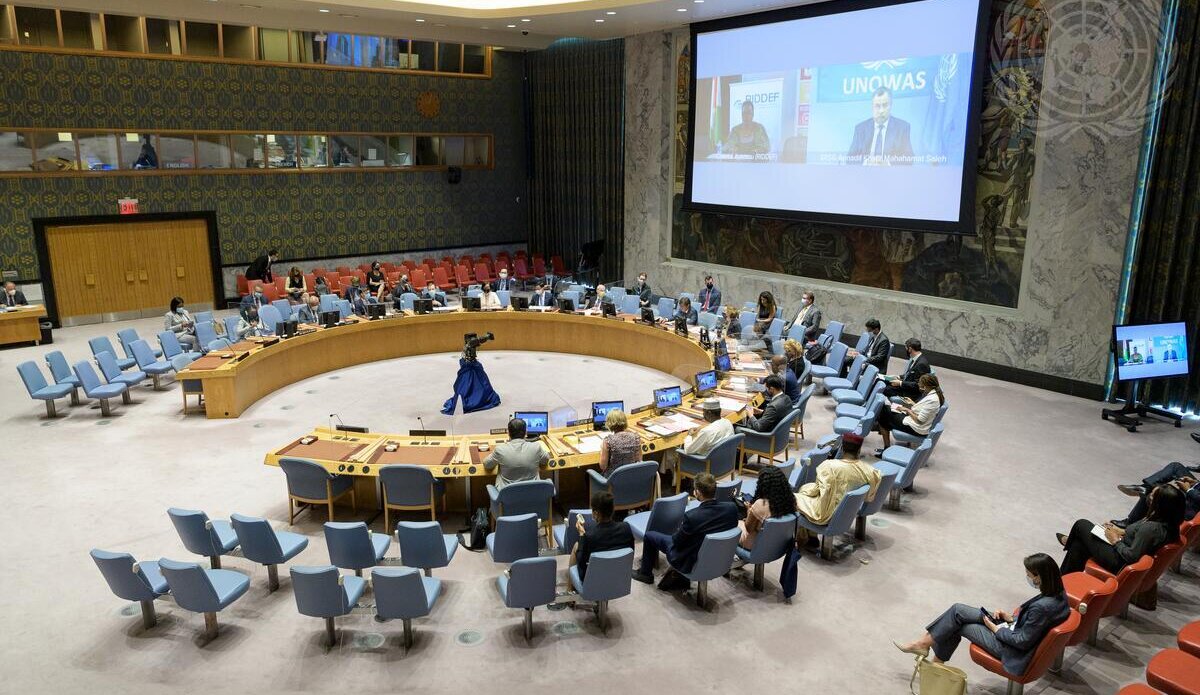ANNADIF Calls on National, Regional and International Partners to Increase Their Mobilization To Face Multiple Challenges
Reiterating UNOWAS Commitment to Strengthen Peace and Stability in West Africa and the Sahel, ANNADIF Calls on National, Regional and International Partners to Increase Their Mobilization To Face Multiple Challenges
The Special Representative of the Secretary General and Head of the United Nations Office for West Africa and the Sahel (UNOWAS), Mahamat Saleh ANNADIF, presented this Thursday 08 July 2021, to the Security Council, by videoconference, its first report of the Secretary-General on the situation in West Africa and the Sahel and on the activities of UNOWAS.
Despite notable progress, the sub-region continues to face challenges that are multiple and persistent. Security challenges, issues related to the participation of women and young people in decision-making bodies, as well as challenges related to climate change, among others, are major obstacles to peace and development in West Africa and the Sahel.
Addressing the security situation, Mr. ANNADIF stressed that “terrorist acts in Liptako-Gourma and in the Lake Chad basin, and crime along the Gulf of Guinea coasts must be dealt with from a regional perspective, because risks of a junction between the threat coming from the sea and that coming from the Sahel are real.” In this regard, he praised the Accra Initiative which brings together Benin, Burkina Faso, Côte d'Ivoire, Ghana and Togo, which promotes a regional approach, while noting “a significant improvement in coordination between the ECOWAS action plan, the regional stabilization strategy for the Lake Chad basin and the United Nations Integrated Strategy for the Sahel, in order to ensure a comprehensive approach and a long-term stabilization.”
Another pressing subject emphasized in the intervention of the Special Representative is the issue of climate change and its impact on security in the sub-region. In this regard, he recalled the initiative of UNOWAS in coordination with United Nations agencies and other partners which has just set up a regional United Nations working group to pool efforts and strengthen coordination with ECOWAS on this subject.
As important actors in the sub-region, young women and men were also a noteworthy subject raised in the presentation of the Special Representative who welcomed the progress of national legislation such as laws on quotas and on parity and called for more efforts to consolidate a positive dynamic in terms of the participation of women and young people.
For more information, you can read the latest report of the Secretary General on the activities of UNOWAS: https://unowas.unmissions.org/sites/default/files/srsgreport-28june21.eng_.pdf
 UN
UN


